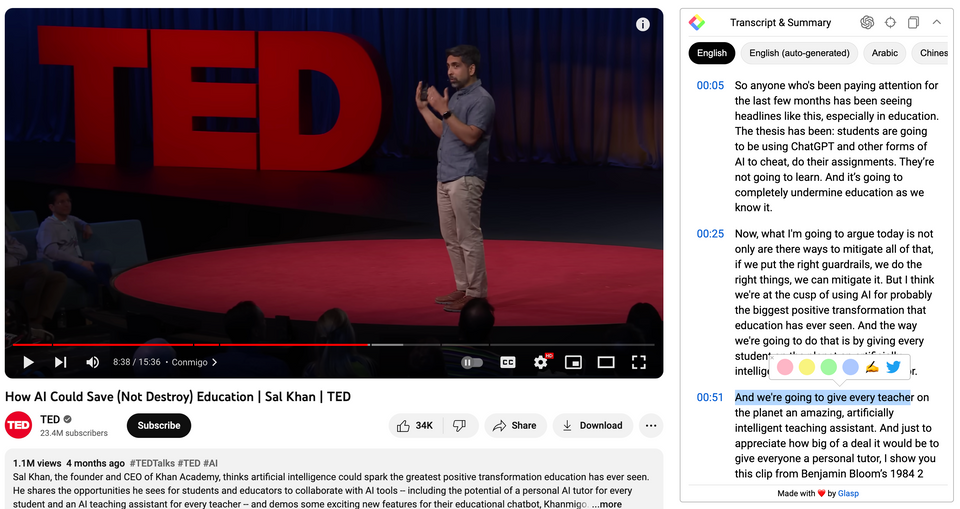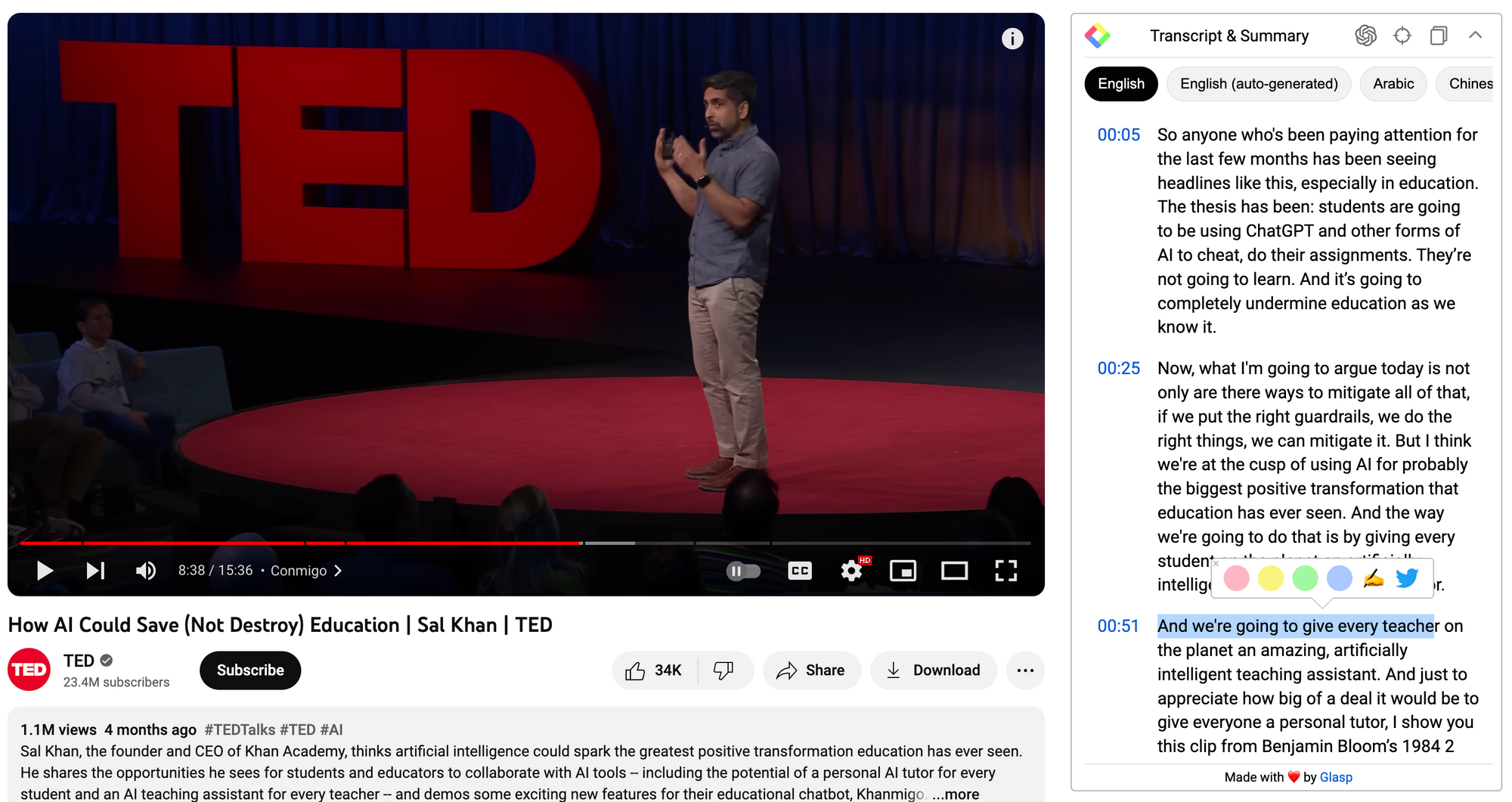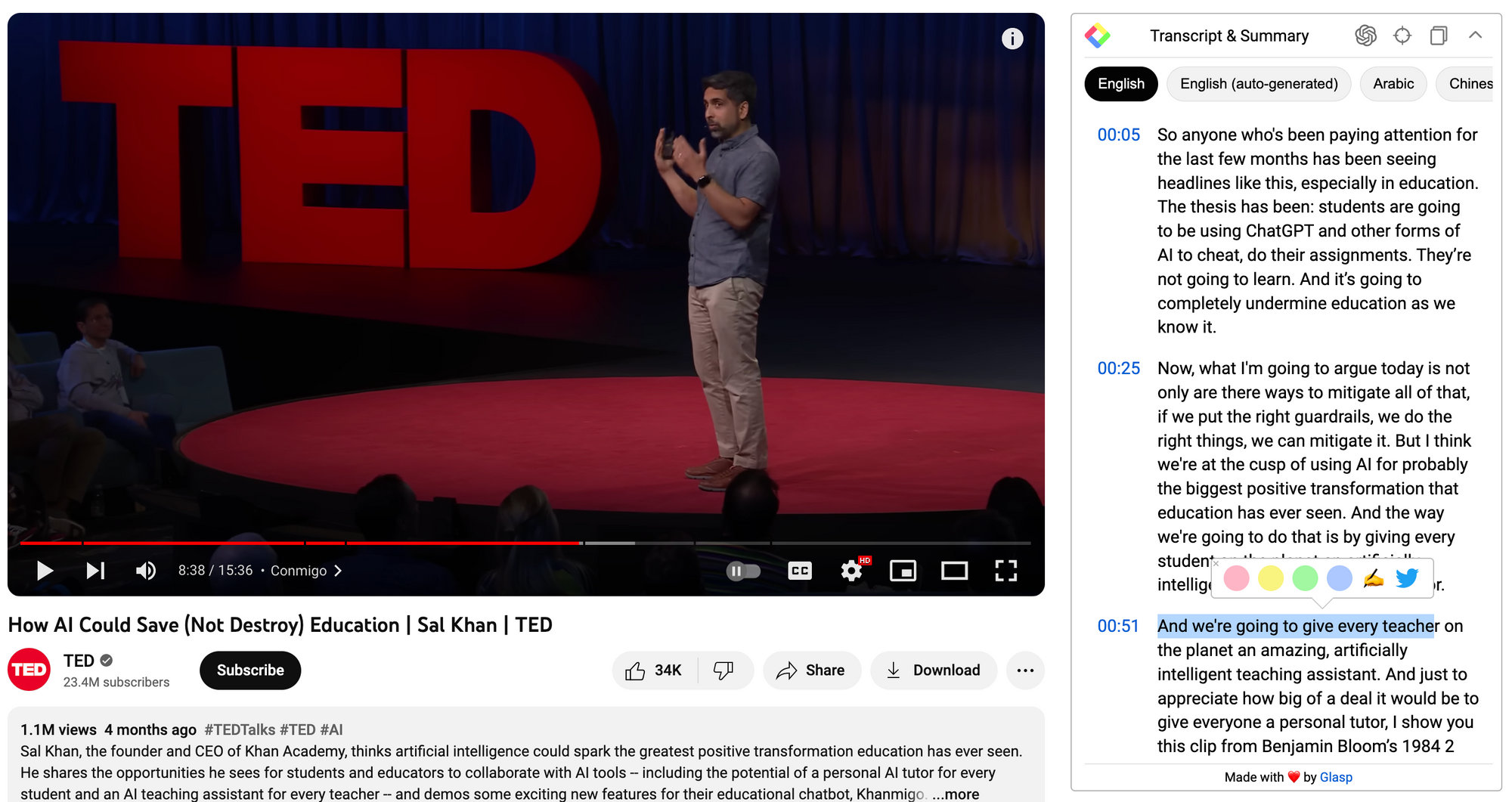Sal Khan - How AI Could Save (Not Destroy) Education at TED Talk: Summary and Q&A

Introduction
In this enlightening TED talk, Sal Khan, the founder of Khan Academy, addresses the prevailing concerns surrounding AI in education. Rather than viewing artificial intelligence as a potential detriment, Khan posits that, with the right approach, AI could lead to one of the most significant positive transformations in the realm of education, offering personalized tutoring and enhancing teacher capabilities. Dive in to understand his perspective on the future of learning.
Summary
- Concerns and Potential: There have been concerns about AI, especially tools like ChatGPT, being used by students to cheat and undermine education. However, Sal Khan believes that with the right framework, AI can revolutionize education positively.
- Personal Tutor for All: Khan envisions an AI system that can serve as a personal tutor for every student worldwide, citing Benjamin Bloom’s 1984 "2 sigma study", which showed that one-on-one tutoring can significantly improve student performance.
- Khan Academy's AI Initiative - Khanmigo: Khan Academy is developing an AI called "Khanmigo", which acts as a tutor, providing hints and feedback without directly giving answers. It can assist in various subjects, from mathematics to computer programming, and even help students understand the context and relevance of their learning.
- Enhanced Reading and Writing: Khanmigo is designed to aid in reading comprehension by asking Socratic questions and providing real-time feedback on writing, making it a tool for learning rather than cheating. It can also assist in interactive storytelling, where students and AI collaboratively create stories.
- Supporting Teachers: The AI can be a powerful tool for teachers, aiding in lesson planning, grading, and offering personalized guidance to students. It can help reduce administrative burdens and allow teachers to focus more on human interactions.

Q&A
How does Sal Khan envision the role of AI in education?
A: Khan believes that AI can revolutionize education by offering individualized learning experiences. By analyzing student data, AI can adapt lessons to a student's pace, making sure that everyone grasps concepts before moving on. This ensures no one is left behind.
Does Khan think that AI will replace teachers?
A: Absolutely not. Khan emphasizes that the role of teachers is irreplaceable. AI can aid and enhance a teacher's ability to deliver content, but the emotional and social guidance that teachers provide is something AI cannot replicate.
How can AI provide a personalized learning experience?
A: Through adaptive learning algorithms, AI can determine where a student struggles or excels, tailoring lessons to meet individual needs, ensuring both challenge and understanding.
What potential drawbacks of AI in education does Khan mention?
A: Khan points out concerns over privacy and over-reliance on technology. Without proper regulations, student data might be misused. Also, without a balanced approach, students might lose out on vital interpersonal skills.
How does Khan Academy plan to integrate AI?
A: Khan Academy aims to use AI for adaptive learning experiences, ensuring content delivery is matched to a student's current understanding and learning style, providing resources as needed.
How might AI impact standardized testing?
A: Khan suggests that AI could make standardized testing obsolete. If we can get real-time analytics on student performance, we might no longer need annual standardized tests, reducing stress and focusing on continual improvement.
Can AI help in promoting equity in education?
A: Khan believes that AI has the potential to democratize education. With AI-driven platforms, quality education resources can be accessible to anyone with an internet connection, leveling the playing field.
What is the expected timeline for significant AI integration in schools?
A: While Khan doesn't give a definite timeline, he emphasizes that the integration process has already begun and will likely be more prevalent in the next decade as technology and accessibility improve.
How will AI change the role of teachers in the classroom?
A: Teachers will shift from mere content deliverers to facilitators and mentors. With AI handling much of the content delivery, teachers can focus more on fostering creativity, critical thinking, and interpersonal skills.
How does Khan respond to concerns about AI diminishing human interaction in the classroom?
A: Khan acknowledges the concerns but believes that if implemented correctly, AI can free up more time for human interaction. By handling routine tasks and individual learning needs, AI can enable more group projects, discussions, and interactive sessions in the classroom.
Before you leave

